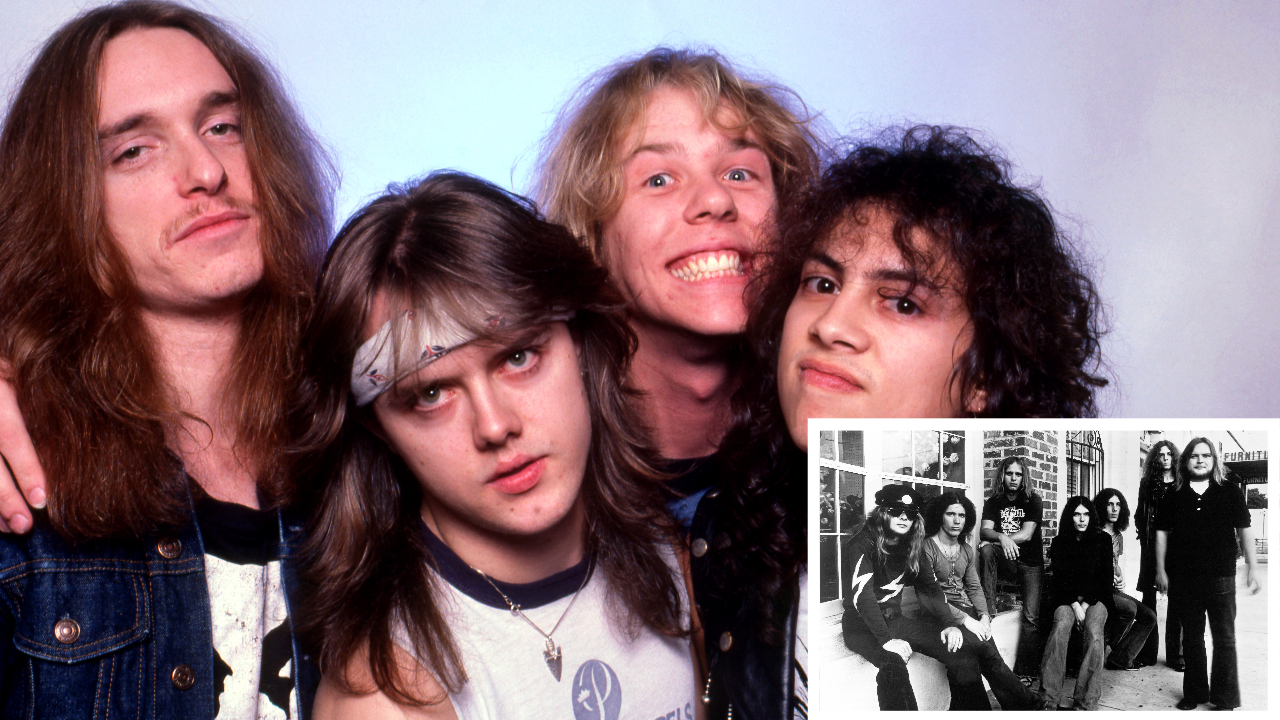Yesterday (Sunday March 5), the music world was saddened by the news that Lynyrd's Skynyrd founding guitarist, Gary Rossington, has died at the age of 71. The last original member of the band, Rossington co-founded Skynyrd in 1964 alongside Ronnie Van Zant, Bob Burns, Allen Collins, and Larry Junstrom, eventually changing their band name from My Backyard to the now world famous moniker of Lynyrd Skynyrd and releasing their critically lauded debut album, (Pronounced 'Lĕh-'nérd 'Skin-'nérd), in 1973.
The album - and the four other Lynyrd Skynyrd records that followed it across the 70s - influenced generations of rock musicians, not least the four gentlemen who'd end up forming the single biggest heavy metal band of all time. Metallica famously put their own spin on classic Skynyrd ballad Tuesday's Gone on their 1998 covers album, Garage Inc, even getting Rossington to play on the cover alongside Corrosion Of Conformity's Pepper Keenan, Blues Traveler's John Popper, Primus' Les Claypool and Alice In Chains' Jerry Cantrell.
Getting to play on Tuesday's Gone with an original member of Lynyrd Skynyrd would have meant the world to Metallica frontman James Hetfield, who idolised the Jacksonville rockers as a young teen and once even told Rolling Stone that he considered the band's hallmark anthem, Free Bird, to be the greatest song ever written. "Nothing tops this workingman's ballad," he told the magazine in 2004. "Free Bird fit my life for the first 20 years on the road — not really getting too attached to stuff, living life for the moment and moving on." In 2011, Hetfield would get to play Tuesday's Gone live with Gary Rossington as Metallica dusted off the cover for one of their epic 30th anniversary shows at the Fillmore in San Francisco.
While Hetfield's adoration of Lynyrd Skynyrd has never been a secret to Metallica fans, many may still be surprised to note that the band even went as far as to sneak a classic Skynyrd riff into one of their earliest hits.
Speaking to Sirius XM in 2018, former Metallica member and longtime Megadeth leader Dave Mustaine revealed that the unmistakeable riff from Skynyrd's 1974 smash hit Sweet Home Alabama was the inspiration for the midsection breakdown in The Four Horsemen, one of the standout cuts from Metallica's 1983 debut album, Kill 'Em All, and a song that was reworked from an original Mustaine composition, Mechanix (a track he'd later release in its original form with Megadeth). Even more impressively, Sweet Home Alabama's influence in The Four Horsemen effectively happened because Mustaine was...well...pissing about.
"So when I joined Metallica, I had the song Mechanix, which I wrote," Mustaine explained. "One day, when we were coming to rehearsal, Lars had just said something about slowing down Mechanix. I had just gotten to the studio with Cliff, and we had been listening to Lynyrd Skynyrd, and I was being a jerk, so I played Sweet Home Alabama instead of Mechanix and thats basically the middle part of what would become Metallica's The Four Horsemen.”
Yup: ever thought that riff around the 3:30 mark on The Four Horsemen sounded awfully familiar? Now you know why - and once you hear it, you just can't unhear it.
In 2019, Metallica would go one further when it came to Sweet Home Alabama - Kirk Hammett and Rob Trujillo jammed the song live on stage at a show in, you guessed it, Birmingham, Alabama. Drawing huge cheers from the crowd as they burst into the song's classic opening riff, the jam even drew James Hetfield out from the back to sing over the top. Apparently, Papa Het just couldn't resist the chance to sing along with a Skynyrd classic once again.
Yesterday, Hetfield paid a short but sincere tribute to Rossington via Metallica's Instagram page, posting a photo of himself alongside the Skynyrd guitarist from that aforementioned Fillmore show. "RIP Brother Gary," the caption read. "Thank you for bringing me so much joy with your guitar playing and songwriting in one of my all time favorite bands, Lynyrd Skynyrd."
Rossington may no longer be with us, but his band's influence on Metallica - and, by extension, on metal itself - will last forever.

